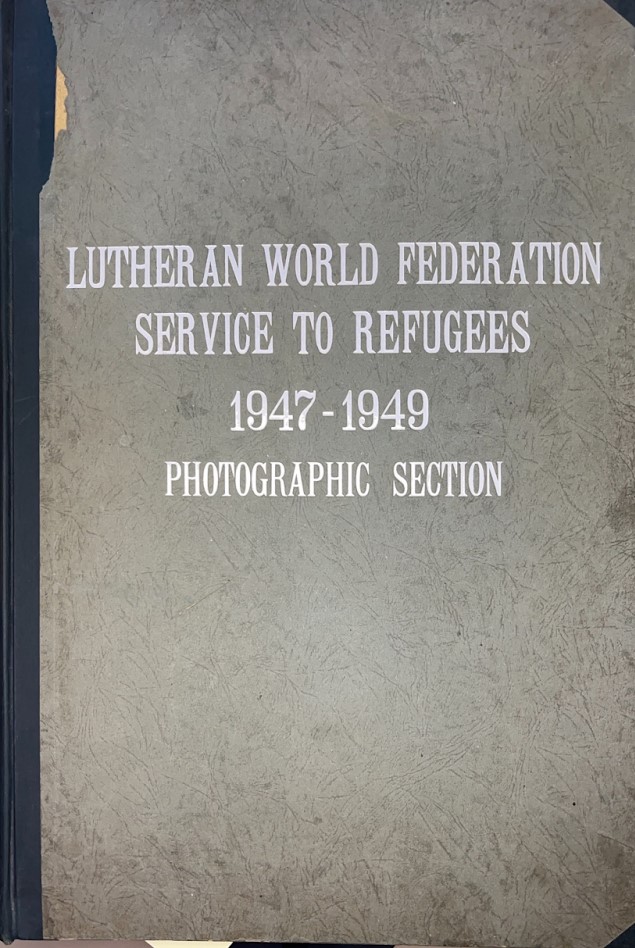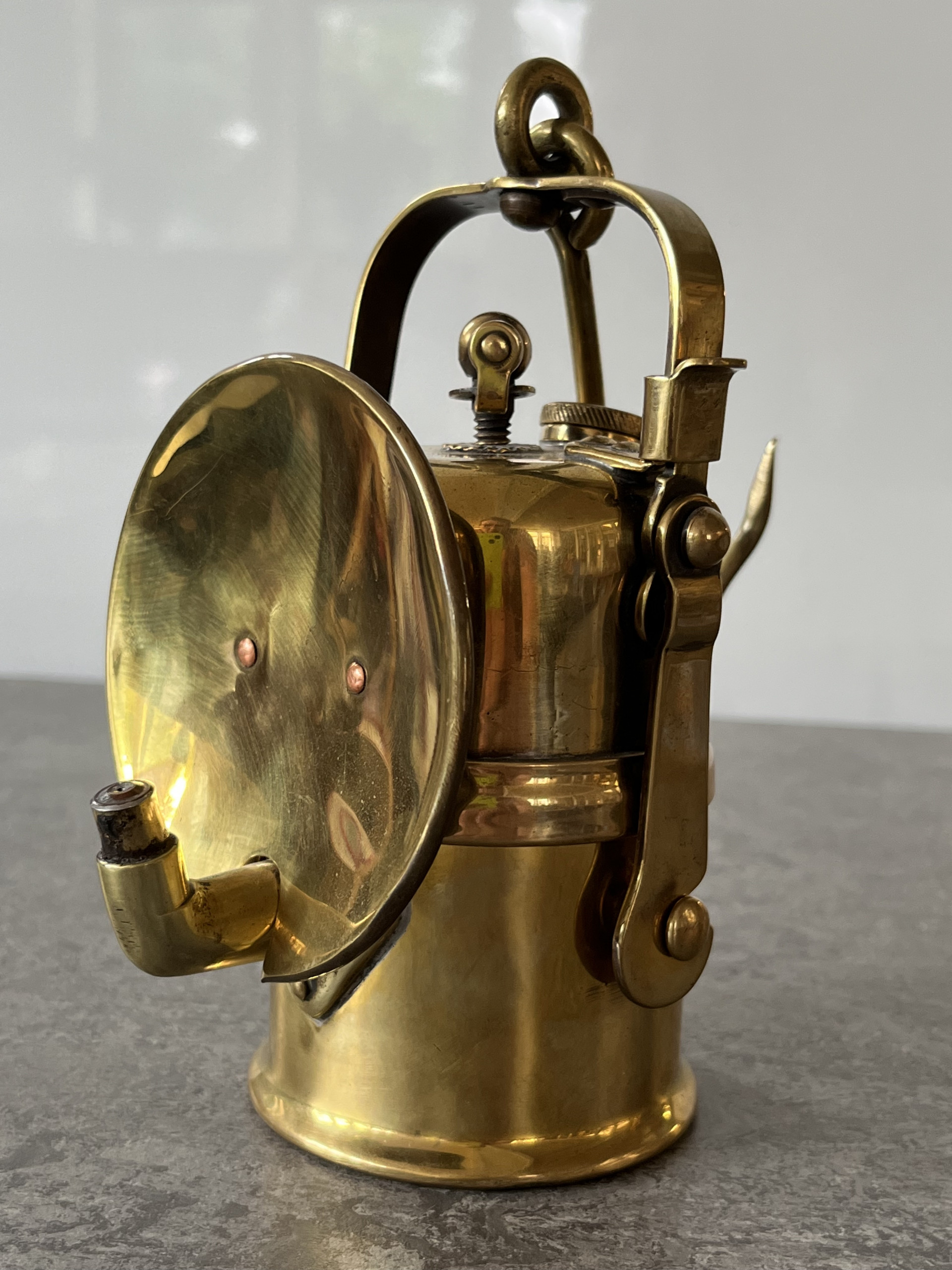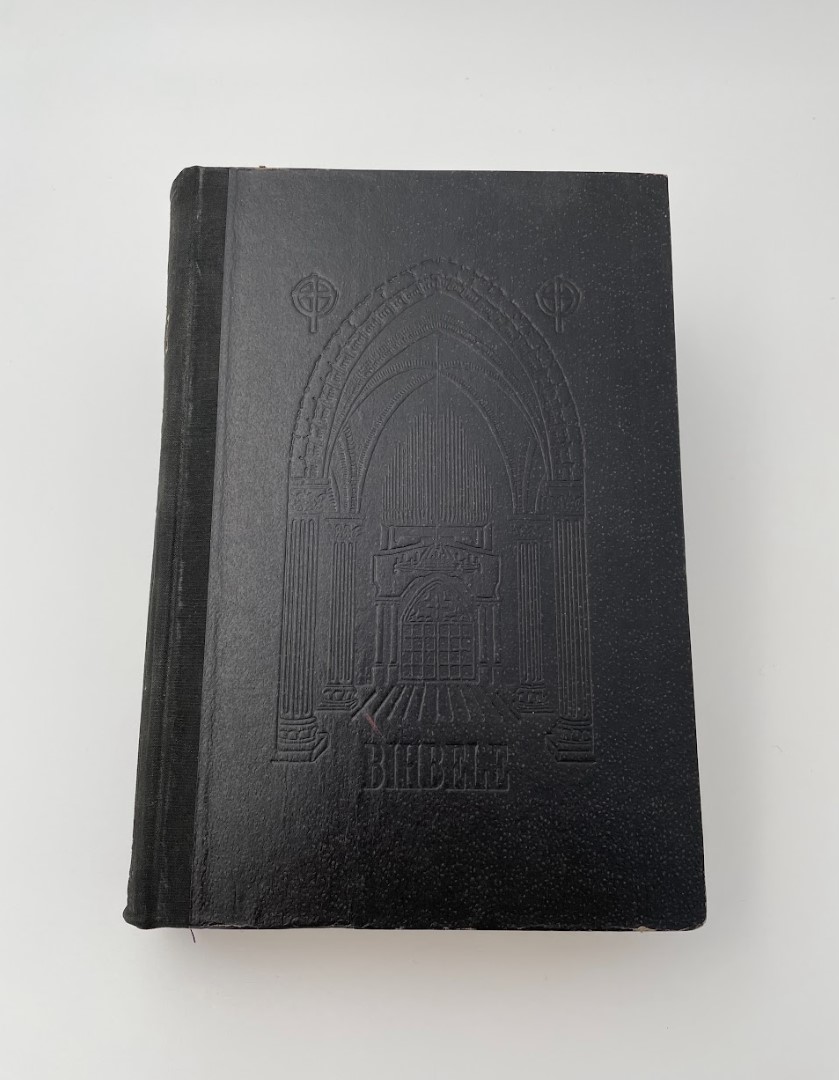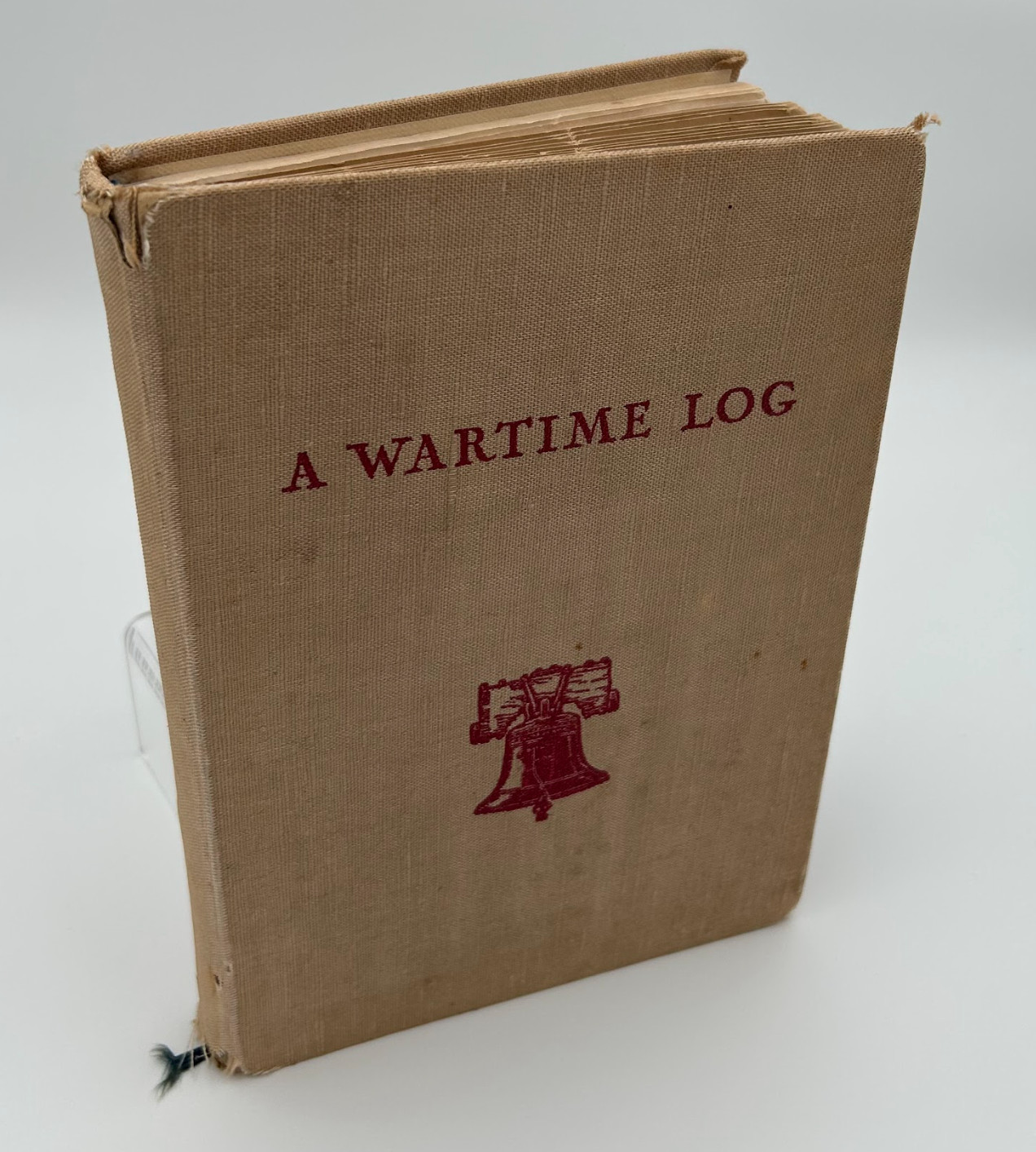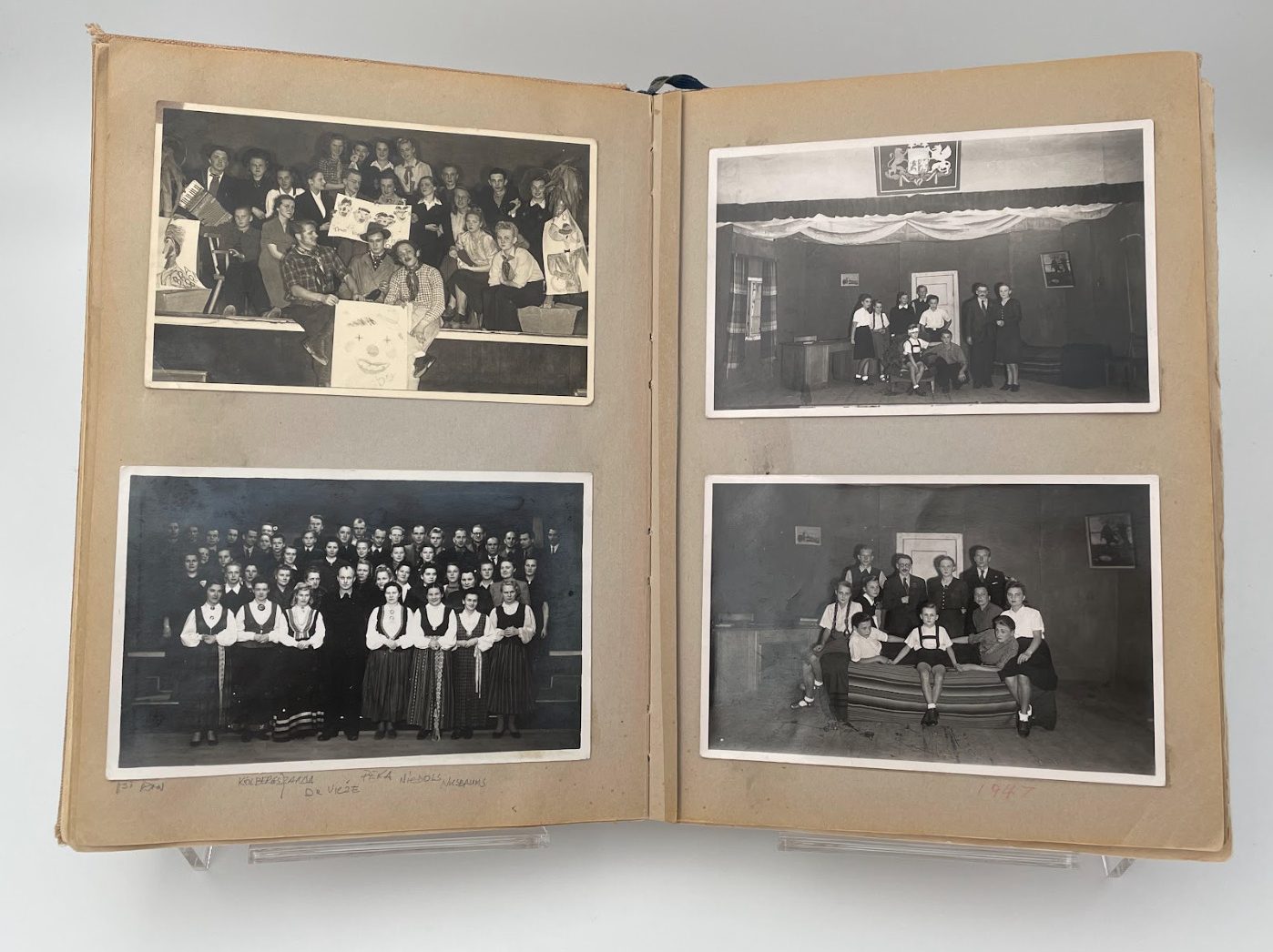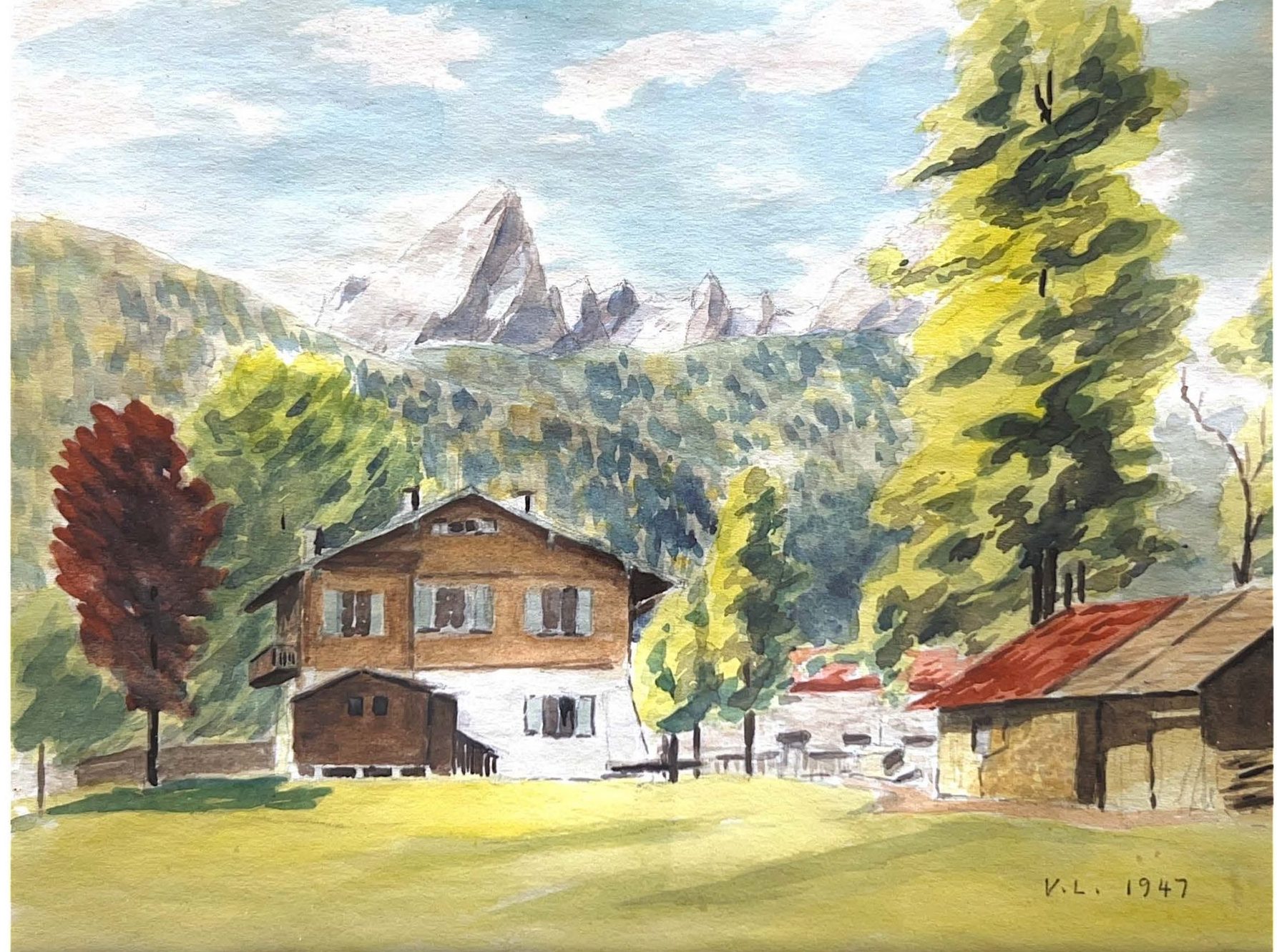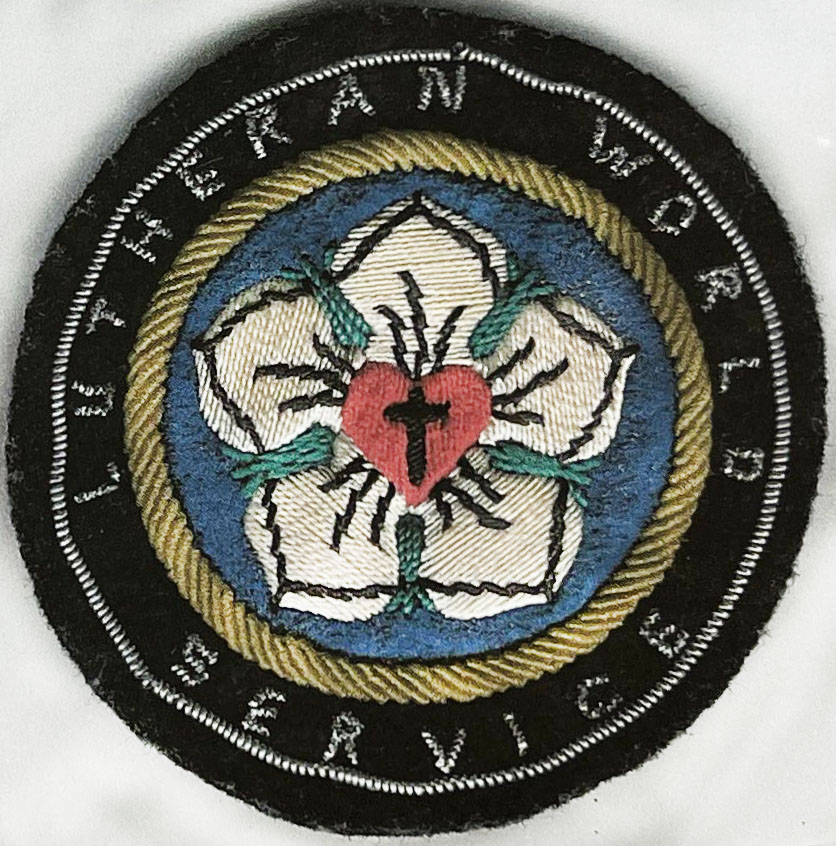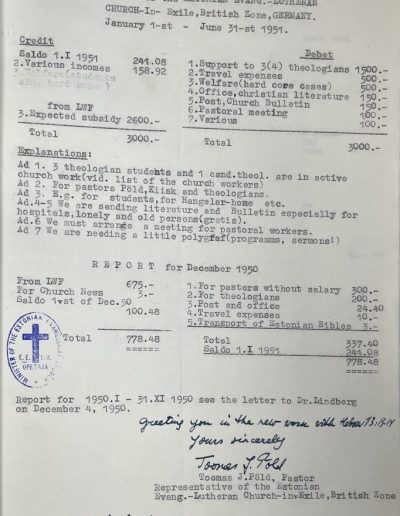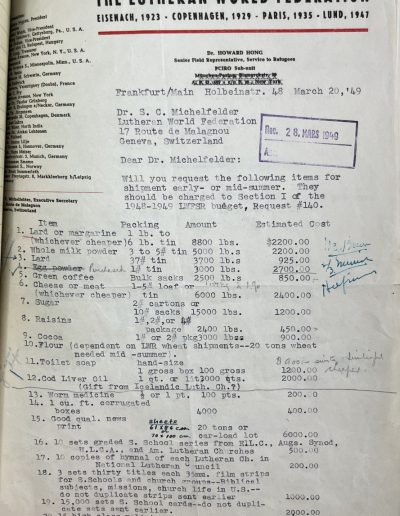Photo Gallery
Throughout the process of this research project, many different artifacts, documents, and photographs were found that each presented a unique aspect of this story. As you scroll down, you will find small bits of the story of Lutheran World Federation Service to Refugees (LWF-SR) work in Germany and the lives of both the workers and the “Churches in Exile.” Appreciate each piece for what it is: one perspective out of many in this history.
Some tips on navigating this page:
Above you can find a menu separating this page into different types of photos/items. Click on each one to be directed to the section in which they belong. You are also welcome to simply scroll through each section of this page.
Each photo can be enlarged by clicking on it and here you will also find a caption for each photo, giving a bit more context.
Everyday Valuables
Exhibiting life in Displaced Persons camps as well as the offices of Lutheran World Federation Service to Refugee workers, this section acts as a small glimpse into their everyday life. Art was created. Lamps were burned. Books were lovingly with photos. Bibles were put into hands. Each artifact holds a snippet of what this story actually, physically looked like to those that lived it.
Calcium Carbide Lamp owned by Dr. Howard Hong (left)
Used in Howard Hong’s office, likely in Weinheim-Bergstraße, this calcium carbide lamp lit the LWF-SR paperwork Hong completed as spiritual ministry director and senior representative in Germany. Carbide lamps like these are powered by the reaction of calcium carbide (CaC2) with water (H2O). This reaction produces acetylene gas (C2H2), which burns a clean, white flame. In the end, they became a very cost-effective way to produce light into the long evening hours of LWF-SR work.
Lent to St. Olaf College German Department and allowed to be photographed by Erik Hong, son of Howard and Edna Hong.
Latvian Bible (Bībele) (right)
This beautifully engraved Bible was printed entirely in Latvian in Helsinki, Finland in 1948. Its publisher, British and Foreign Bible Society, was known to print Bibles in many languages and for many people, including Latvian displaced Lutherans. They were also known to occasionally work with LWF-SR workers to print and distribute Bibles to displaced congregations or the “Churches in Exile.” A significant amount of the work of LWF-SR focused on providing materials and support for services and religious life in displaced persons camps and this meant putting translated Bibles in the hands of Lutherans in need.
Donated by John Plume to St. Olaf College.
Memory Album of Ventis Plume (below)
Ventis Plume, Latvian displaced person who lived in displaced persons camp Insula, was initially given this “wartime log” as a gift from the YMCA in the late 40s. In this log, he placed many photographs of his life in Insula as well as many messages from friends and family there. This album provides an elaborate and personal glimpse into Plume’s life in Germany as well as what life looked like for displaced families.
Donated to St. Olaf College by Ventis’ brother, John Plume, also a former resident of Insula.
Watercolor Painting of Berchtesgaden
This painting of the region of Berchtesgaden, Bavaria, Germany, was painted in 1947 by Valdis Lauva (1908, Lubāna, Latvia-2000, Rochester, NY), former resident of the displaced persons camp at Berchtesgaden called Insula. Insula and Berchtesgaden were a safe haven for Latvian displaced persons as well as many religious leaders who studied at the Lutheran Study Center set up by LWF-SR.
Painting donated to St. Olaf College by John Plume, also a former DP resident at Insula, and used with permission of Velta Zadins.
LWF-SR Worker Identification 1947
Donated to the Landeskirchliches Archiv in Hannover, Germany by James Anderson, this LWF-SR worker identification was worn by different area directors, resettlement workers, congregational care personnel (those delivering care packages), and many more. One badge allowed LWF-SR workers access to different camps, resettlement centers, and at times zones, all through which they had to often move through.
Used with permission of Landeskirchliches Archiv and Lutheran World Federation
People (LWF-SR Staff, Displaced Persons, and St. Olaf Connections)
LWF-SR work required a lot of aid in a variety of different contexts and skill sets as well as an understanding of who they were aiding. Below one finds both the workers and those in need. However, quickly you will realize the line can be blurred between the two, as many displaced pastors took part in the organization of programs. One also will find the beauty of cultural heritage and the persistent presence of life in the lives of displaced people here. LWF-SR was, to put it simply, not a simple organization but rather an organization with a diverse staff and diverse need.
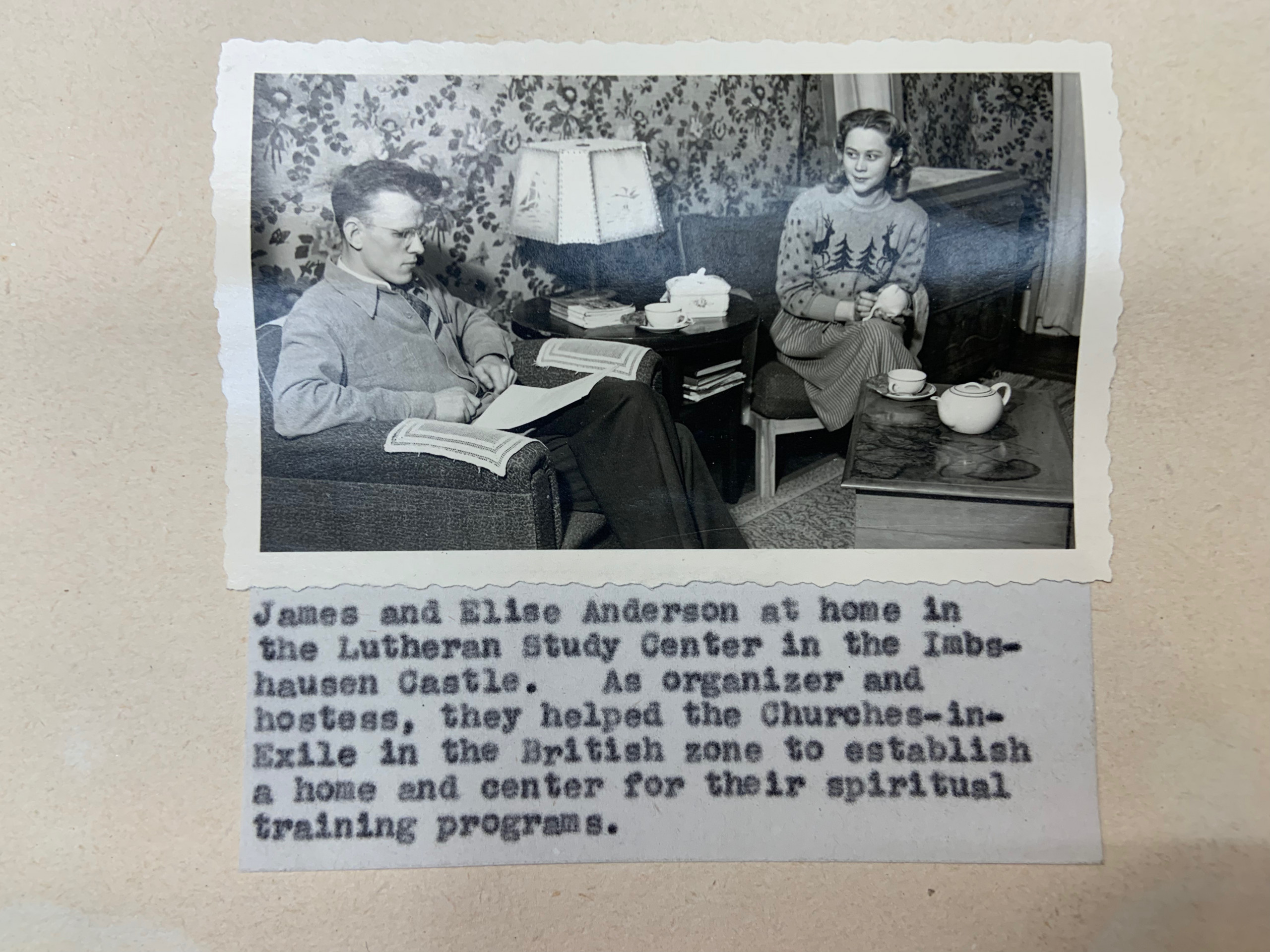
James and Elise Anderson at Home (LWF-PS)
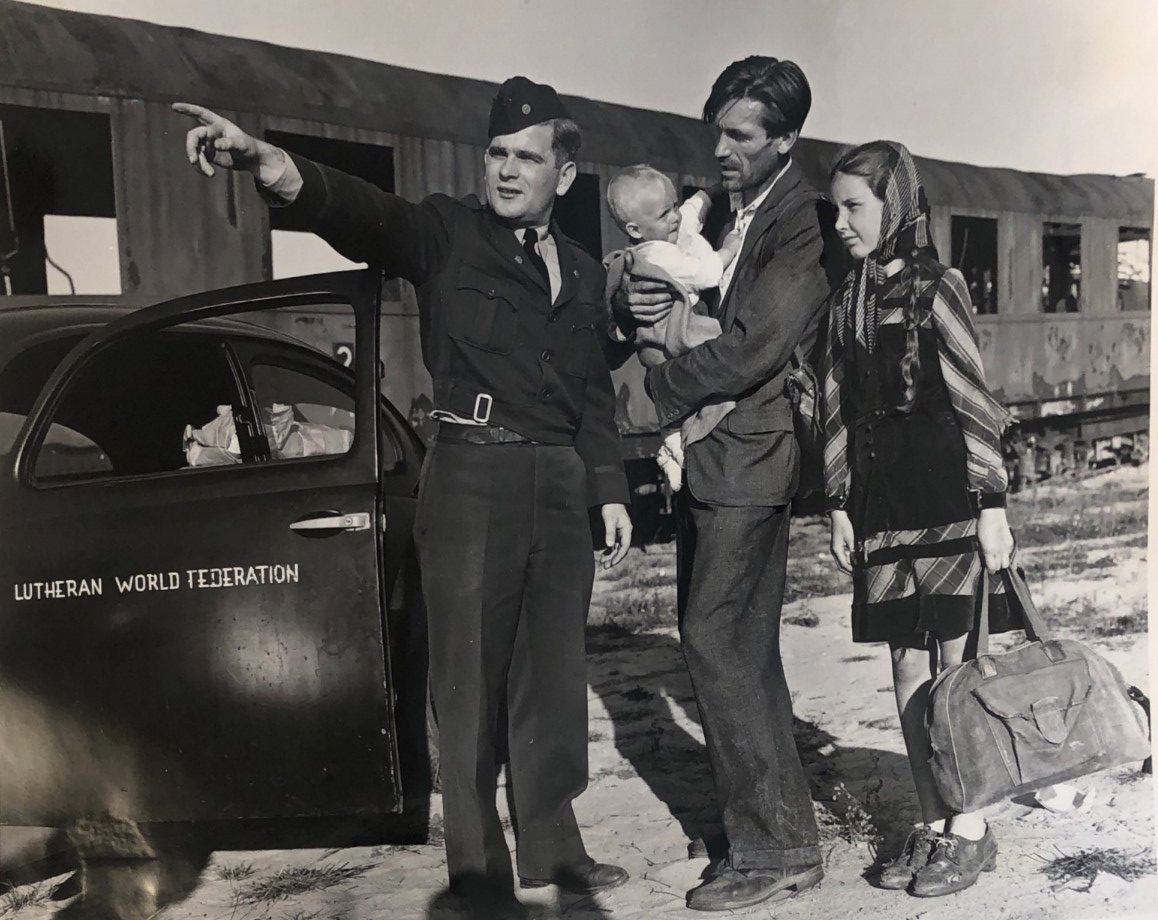
Kenneth Senft with Answers for Anne Cast (LWF-PS)
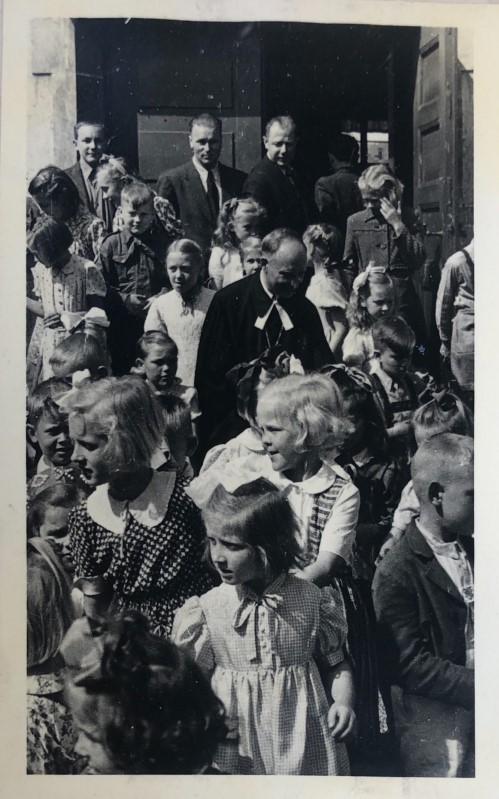
Raudsepp among Sunday School Children ((LWF-PS)
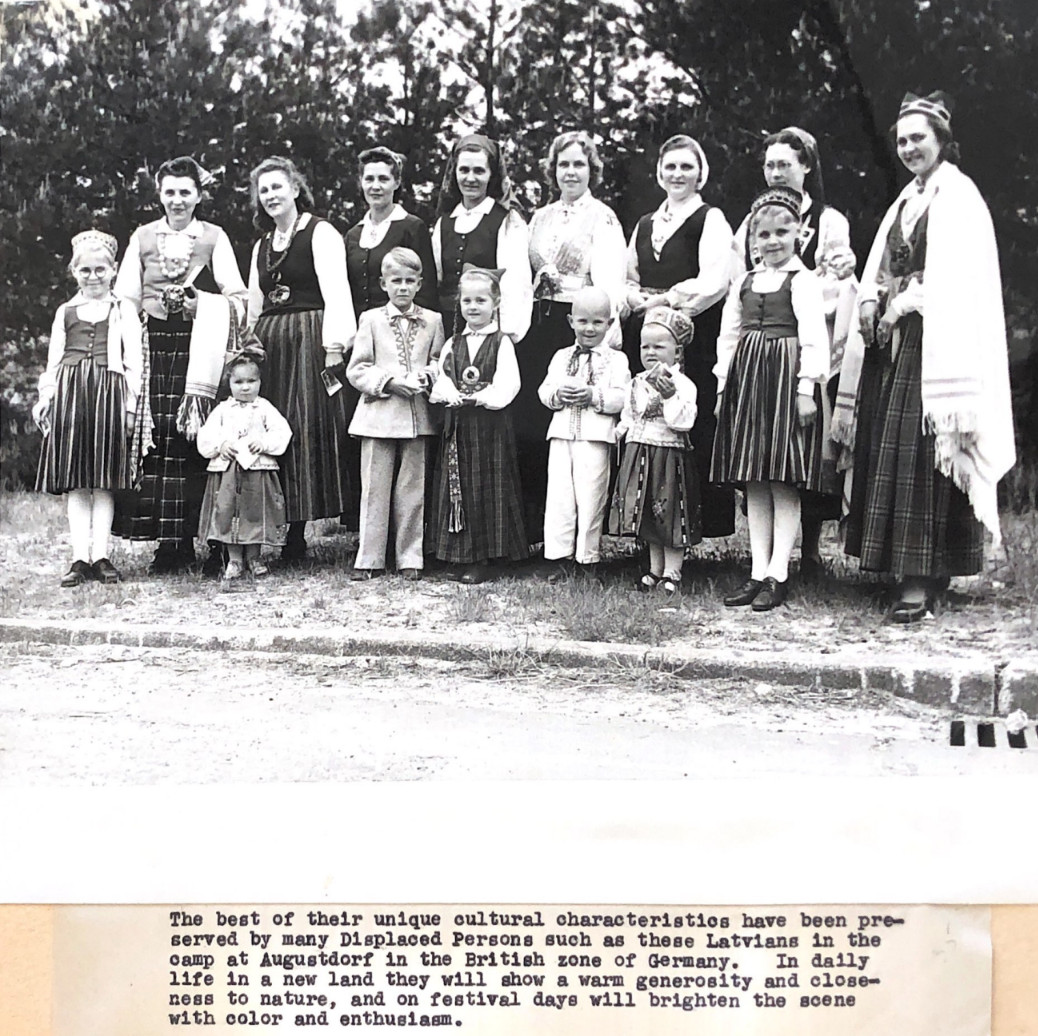
Displaced Persons at Augustdorf (LWF-PS)
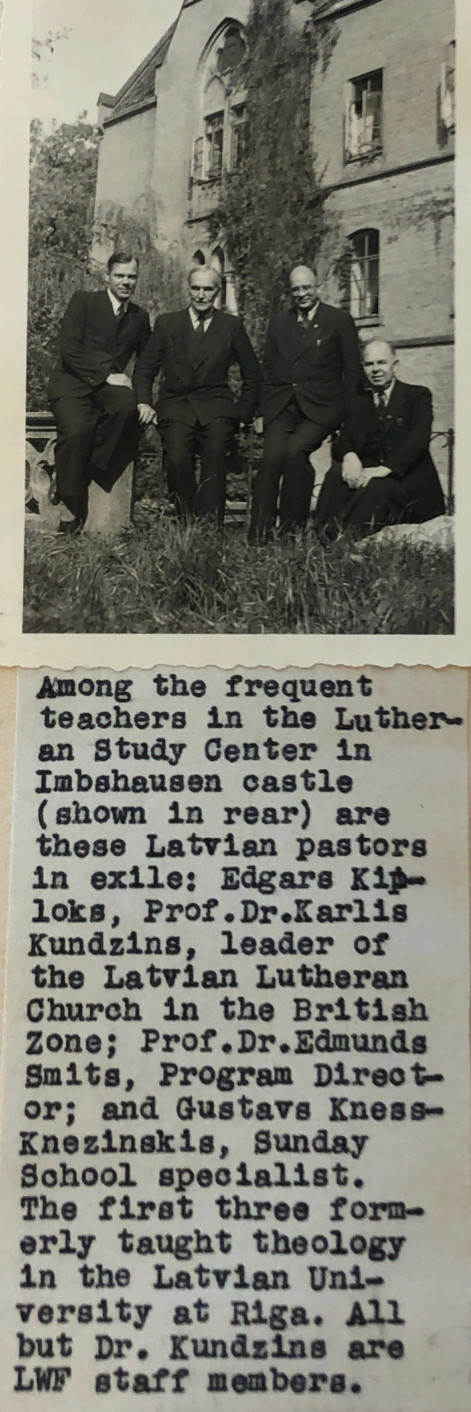
Latvian Pastors and Professors (LWF-PS)
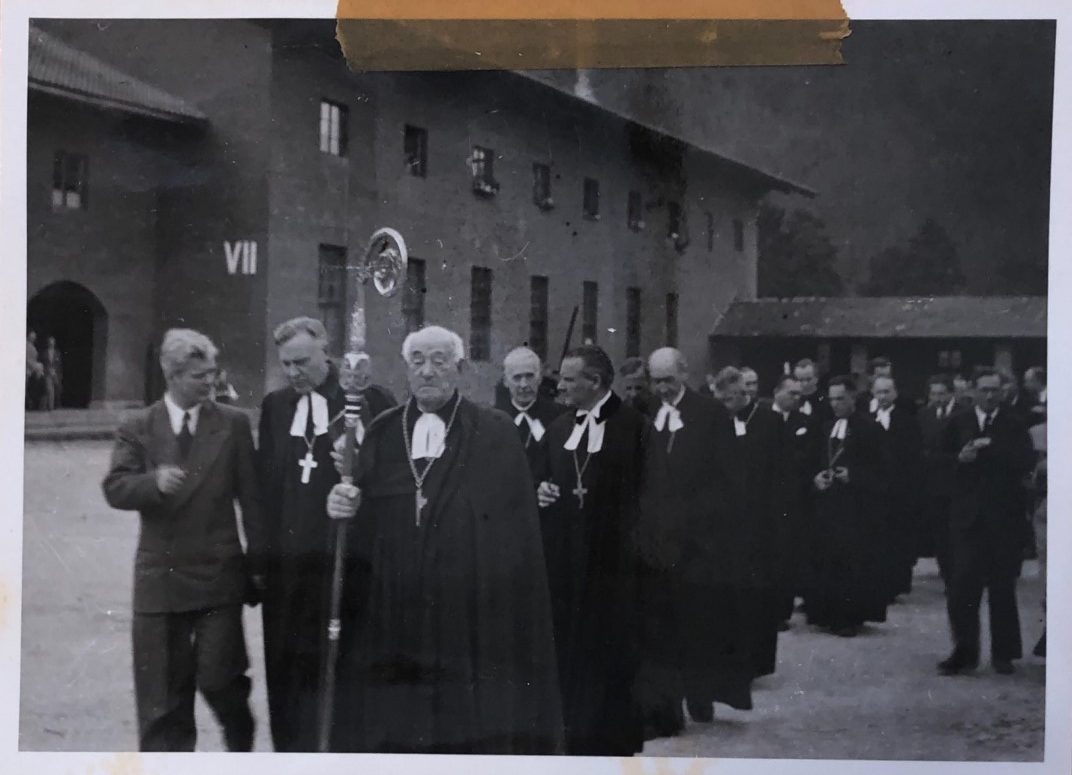
Bishop Grünbergs (LWF-PS)
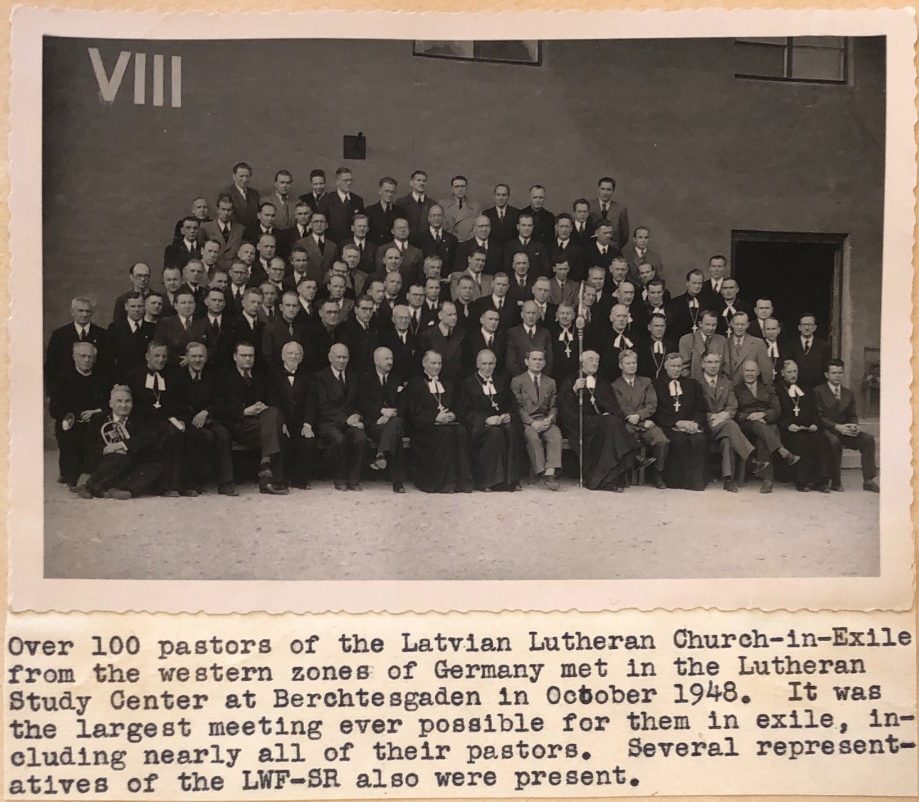
Latvian Lutheran Church-in-Exile (LWF-PS)
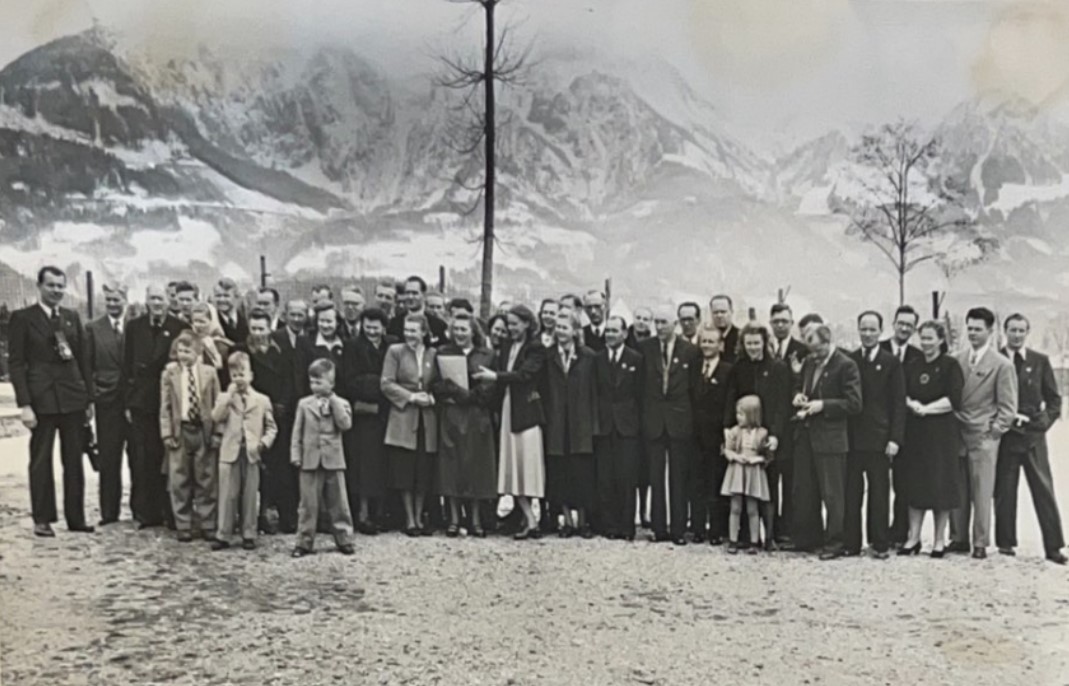
American Zone Staff at Berchtesgaden (LWF-PS)
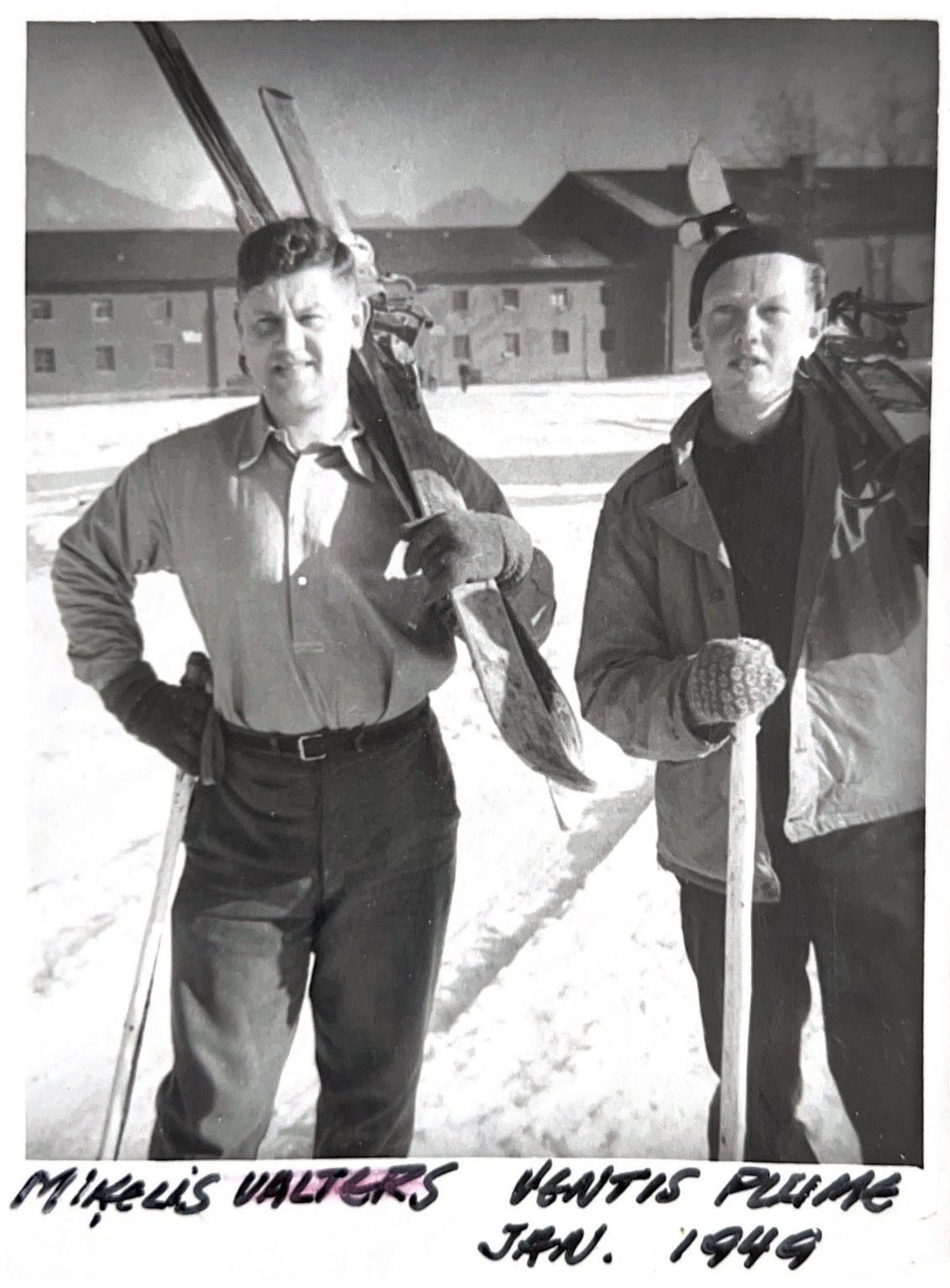
“Mikelis Valters and Ventis Plume January 1949” (Insula-Island of Hope)
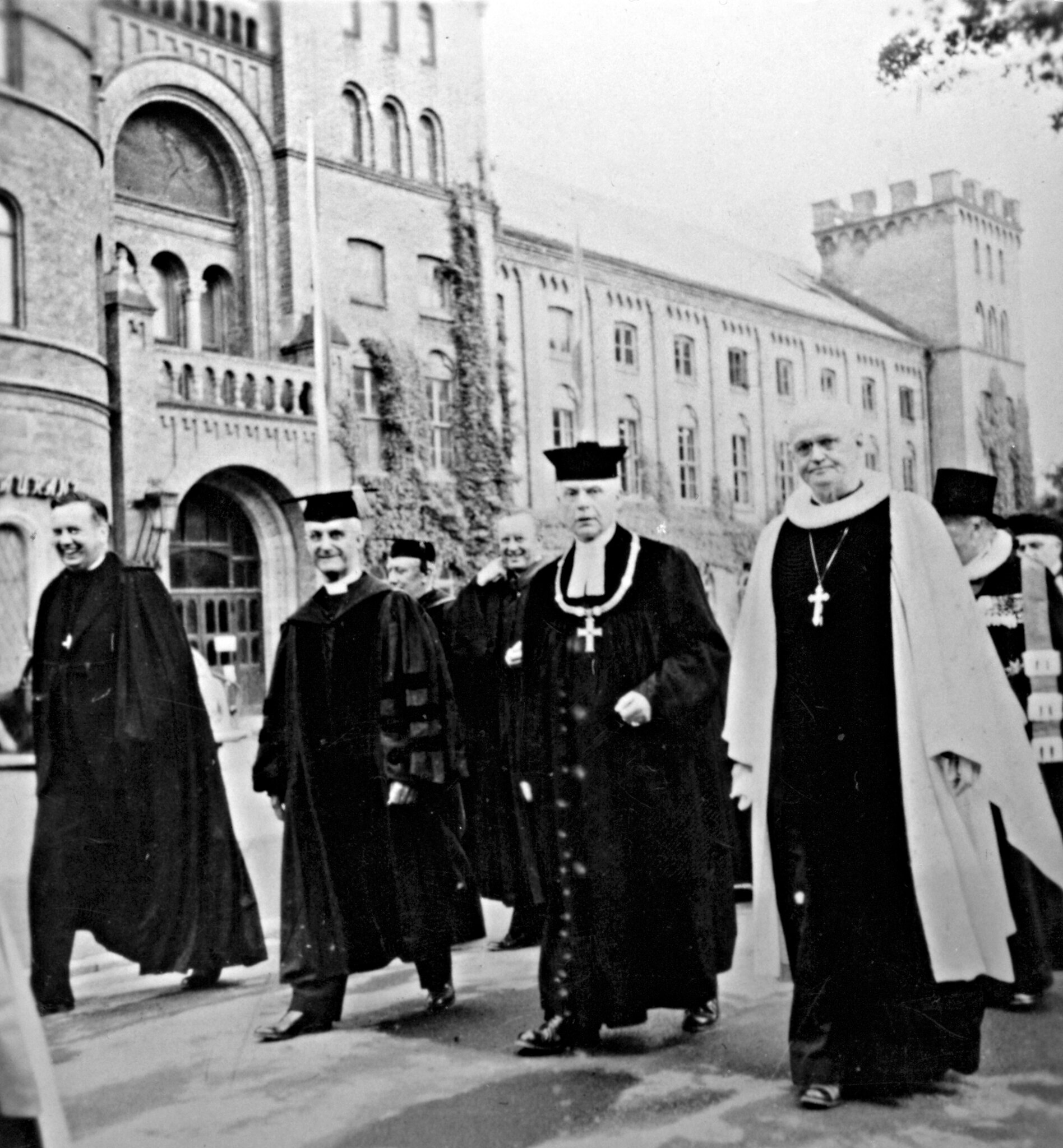
LWF Lund Aasgaard (used with permission of Lutheran World Federation)
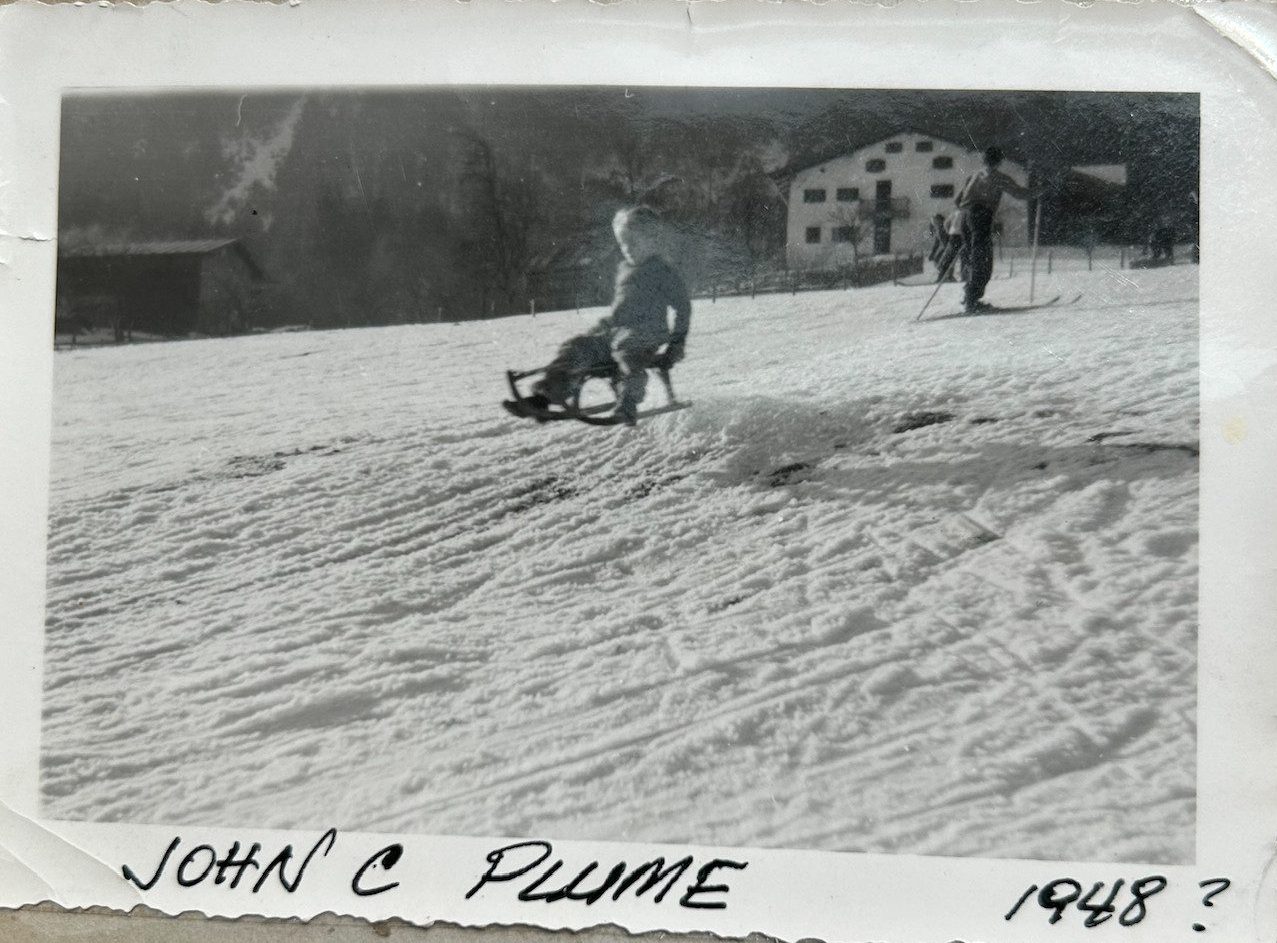
John Plume, 1948? (JP)
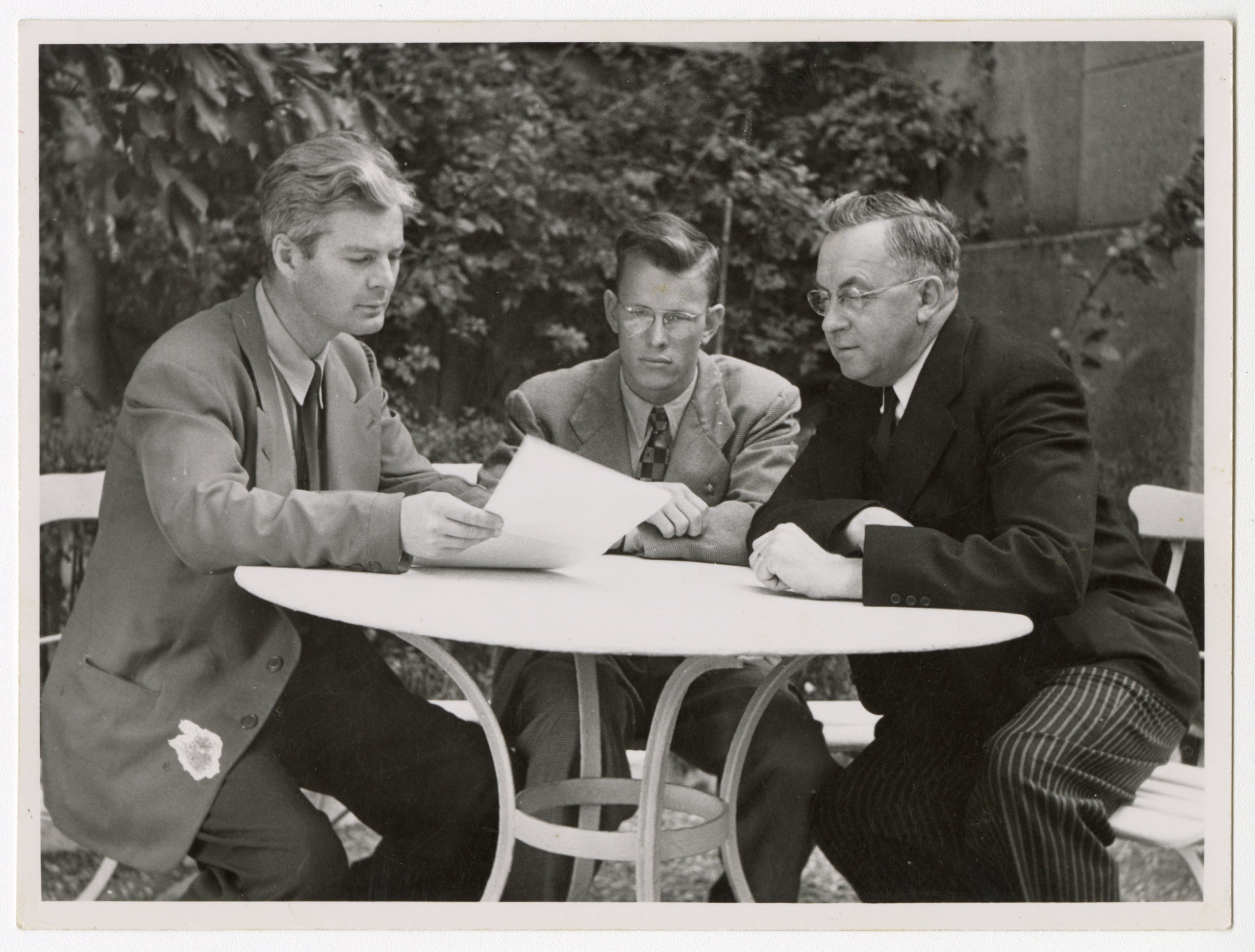
LWF Hong Anderson Michelfelder
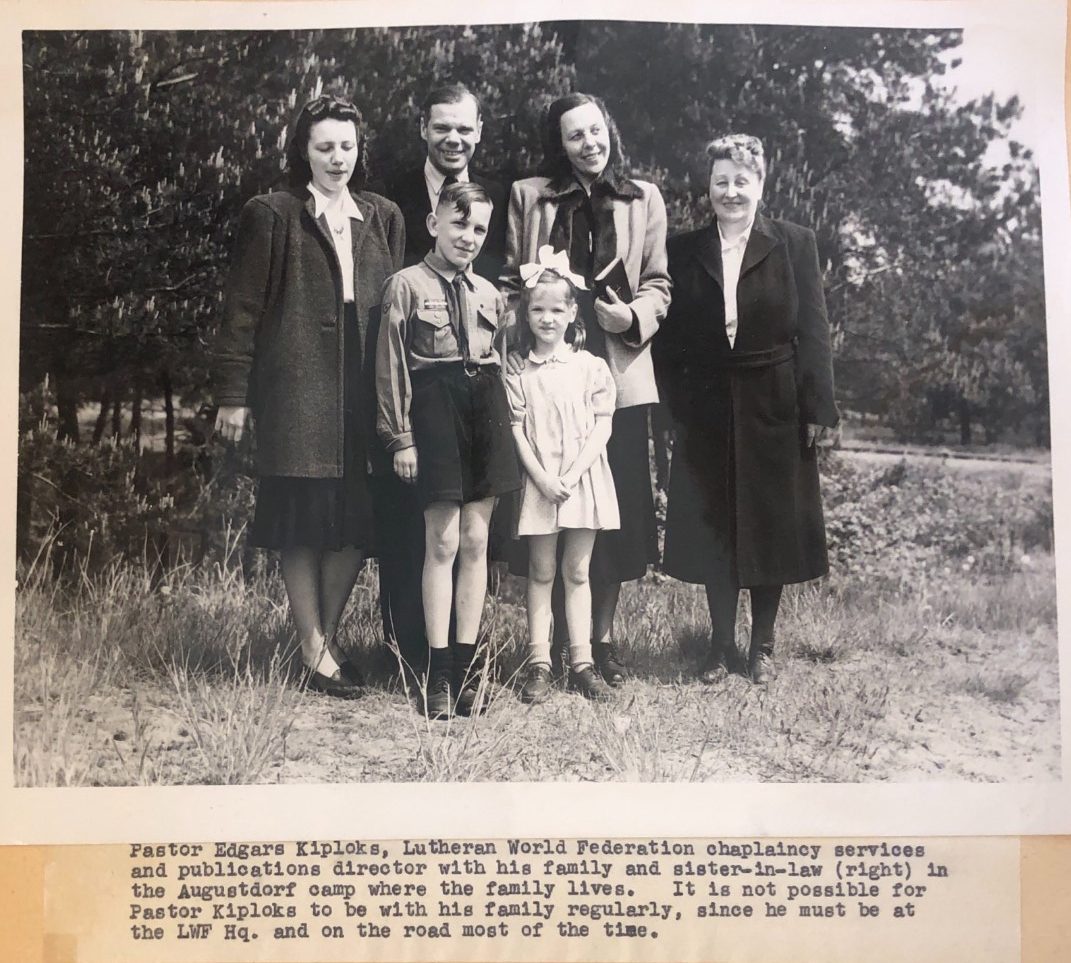
Kiploks with Family (LWF-PS)
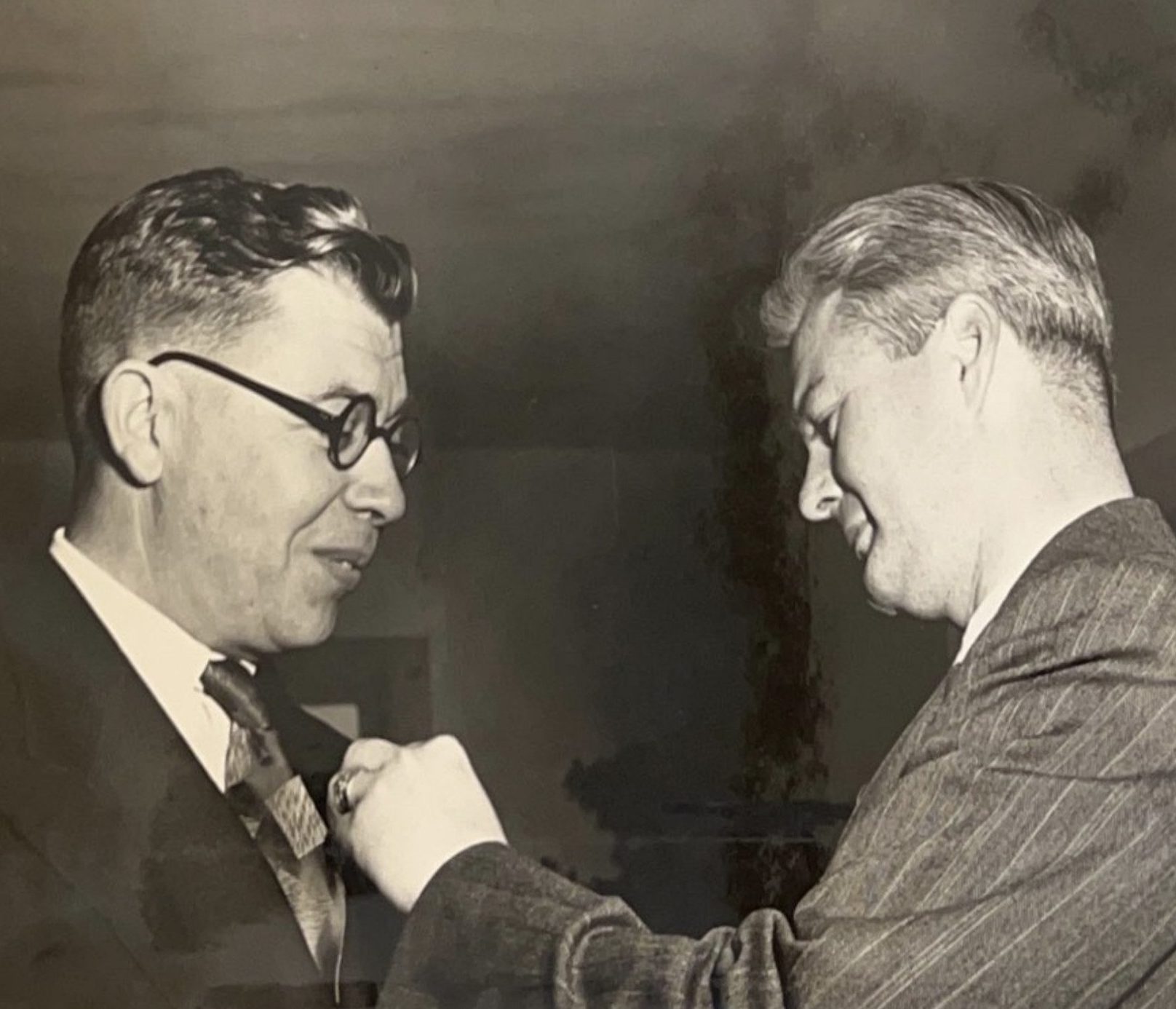
Pastor Lind receiving Insignia from Hong (“Mikelis Valters and Ventis Plume January 1949” (LWF-PS)
Work of LWF-SR
Put simply, the work of LWF-SR often had to take on many different programs and forms. With around eight main programs (that is, eight distinctively and repeatedly documented programs; there were plenty more), many people under different circumstances were aided. This took paperwork, this took packages, this even took lectures! Below is merely a snapshot of or entrance into the abundant work that was done for those needing spiritual and material care.
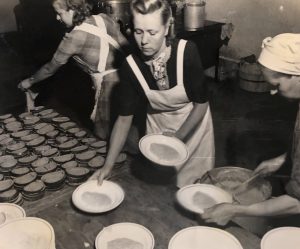
Women Serving Food at Berchtesgaden (LWF-PS)
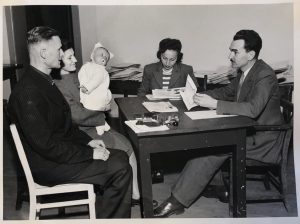
Last Investigation before Departure (LWF-PS)
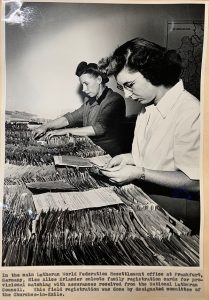
Alice Erlander Frankfurt (LWF-PS)
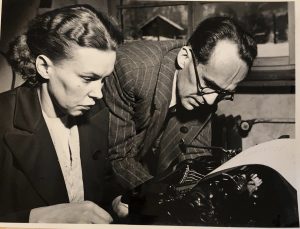
Preparing List of Sponsors (LWF-PS)
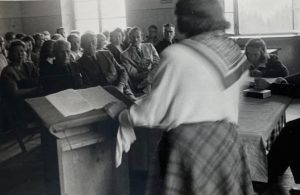
Nurmet Lecture at Berchtesgaden (LWF-MR)
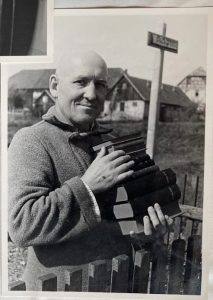
Estonian Church-Warden Receiving Bibles (LWF-MR)
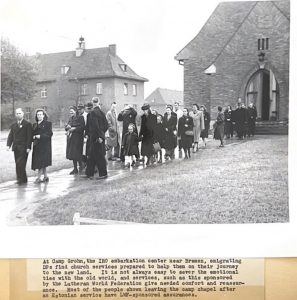
Service at Camp Grohn (LWF-PS)
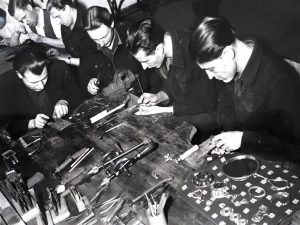
Rehabilitation Center for Wounded War Veterans (LWF-PS)
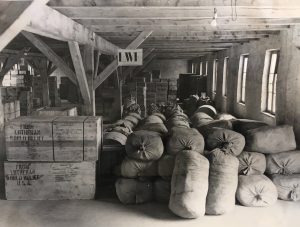
Munich Warehouse (LWF-PS)
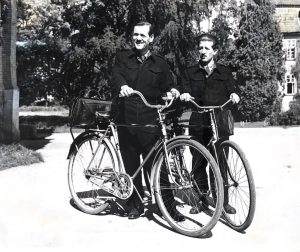
Hungarian Pastors with Donated Bikes (LWF-PS)
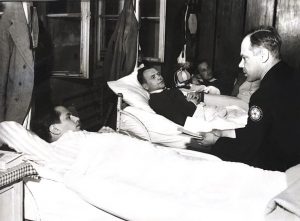
Chaplaincy Service (LWF-PS)
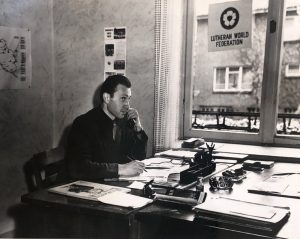
Lübeck Office (LWF-PS)
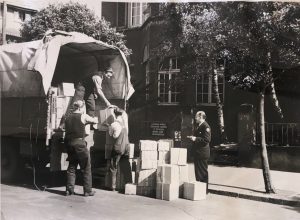
Unloading Congregational Care Packages (LWF-PS)
Paperwork was a large part of LWF-SR work as workers, volunteers, churches, and other volunteer agencies all had to be in communication. Simply finding supplies took multiple letters back and forth discussing prices and shipments. But some documents also show a bit more of the life found in LWF-SR, including illustrated Christmas greetings or different class schedules.
Estonian Ev. Church in Exile Expense Report 1950 (LWF-A)
With subsidies from LWF and their own incomes, Churches like the Estonian Evangelical Church in Exile were able to sustain their religious needs/work. One can see their various needs in the “debet” section.
Michelfelder-Hong Order Request 1949 (LWF-A)
LWF-SR required a lot of different types of material to suit many different types of needs. In this order request from Howard Hong to Sylvester Michelfelder, one can see the variety of needs fulfilled: whole milk powder (additional nutrition), cod liver oil (a supplement thought to have many health benefits), good quality news print (for church newspapers and periodicals), and film strips for Sunday Schools (for general religious education and youth work).
Classes Offered at Imbshausen Study Center 1948-1949 (LAH)
The Imbshausen and Berchtesgaden Study Centers served as places of learning for the many displaced persons in religious positions or wanting to be in such. Classes for Sunday school teachers or pastors often were held in these centers.
Photo Credits
Given the nature of this section and the amount of photos compiled here, a small key of sources can be found here:
LWF-PS: Lutheran World Federation Service to Refugees 1947-1949 Photographic Section, used with permission of the Lutheran World Federation and Evangelical Lutheran Church in America
LWF-MR: Lutheran World Federation Service to Refugees in Germany 1947-1949. Materials for Report, vol. 1, ed. Howard Hong (1949), used with permission of the Lutheran World Federation and Evangelical Lutheran Church in America
LWF-A: Lutheran World Federation Archive, Geneva, Switzerland
LAH: Landeskirchliches Archiv, Hannover, Germany
JP: donated by John Plume
EH: used with permission of Erik Hong
